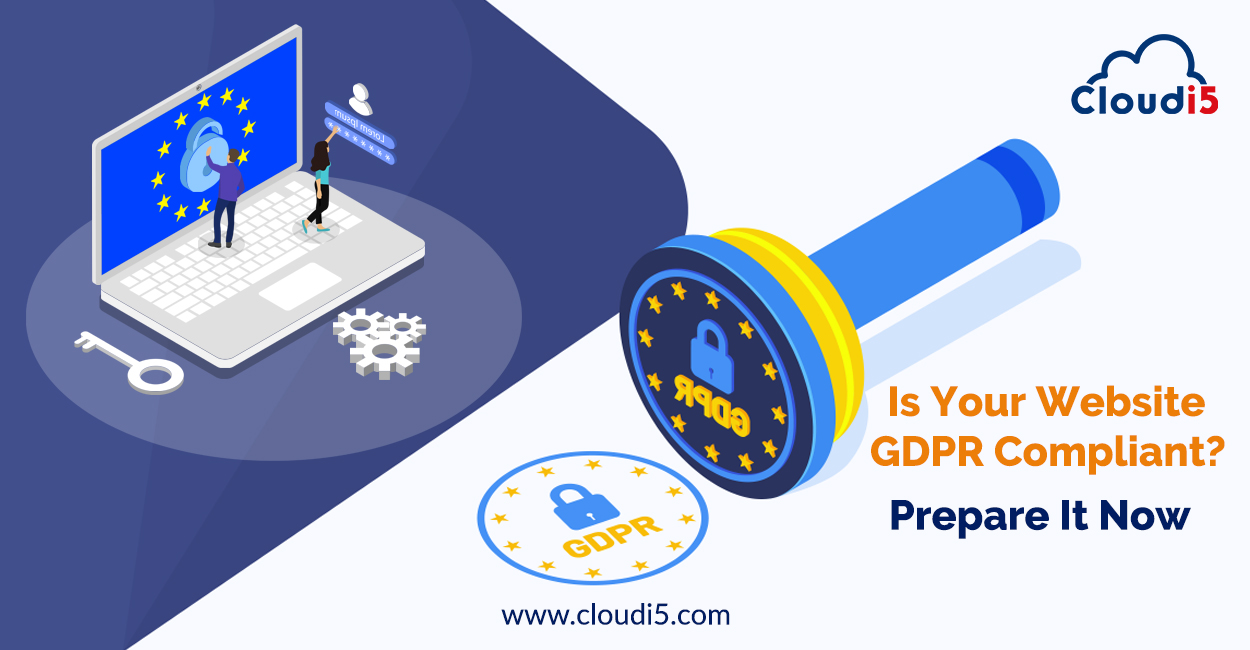
Is Your Website GDPR Compliant? – Prepare It Now
Websites and applications have become an integral part of every individuals' life. People share valuable information with numerous websites for professional and personal needs. Such data are exposed to vulnerabilities as the individual is unaware of the storage and usage of their details in some situations. To overcome all such problems the European Union implemented the protection and privacy policy called GDPR.
GDPR
General Data Protection Regulations (GDPR) is an EU standard followed by companies to secure the customers' information. This law is in practice since May 2018. According to this policy, companies dealing with data related to EU citizens should maintain transparency in the information collected and the purpose.
GDPR ensures
- The companies get permission of users while using their personal information
- Individuals or customers have the rights to deny access to their information
- They may or may not prefer to share details in public
Implementing GDPR policy on your website
Updating or creating a privacy policy - The businesses should clearly state the details on the collection, storage, and usage of the information collected. Mention the terms and conditions on the website about the transparency of procedures implemented and data shared with the third party website. Keep the users informed of their rights and control of the personal data they provide.
Ensure the website security
Website security improves the credibility of your brand. Acquiring an SSL certificate creates an encrypted connection between the user's browser and the website to protect the data. The payment transactions executed on your website is safeguarded with this security standard enforced by the Payment Card Industry. Therefore ensure it in your web design and plan strategies for compliance as needed.
Activating plans to report the data breach
If there is an unauthorized activity predicted by the organization, it should be reported within 72 hours. You can prevent data breaches by training the employees on privacy regulations. Delegate experienced and technically sound staff to proactively handle the issue and take necessary actions in case of any breach.
Checks on forms, emails, and newsletters
The consent of users is essential at all places of contact. The forms should contain the check box to acquire permission. The mails and newsletters must have a tab indicating unsubscribe or something similar so that the user can terminate it whenever needed. The information listed should be specific and easy for users to understand. It should also specify if the information will be shared with the party. Use the remarketing techniques to retain the existing customers and assure to safeguard their valuable data.
Update the software and plugins
The user's data provided should be analyzed and tracked as to what kind of information is collected. You should also be aware of who is processing the data and the purpose of the process. You can do it by anonymizing the data before storing it. The plugins and tools should be used to perform the task and ensure GDPR compliance. Acquiring permission through cookies and notifications keeps the audience aware of the consent requirement.
GDPR compliance has become essential as the use of personal data on digital platforms is growing higher every minute. Protecting sensitive data is the responsibility of business websites. Customers provide their details to your website as they trust your brand. Hence, preparing your website and improving the cybersecurity aspect ensures credibility. Cloudi5 web designing agency adheres to the necessary regulations and standards to provide efficient platforms to its customers.
Trusted By












Leave Comments